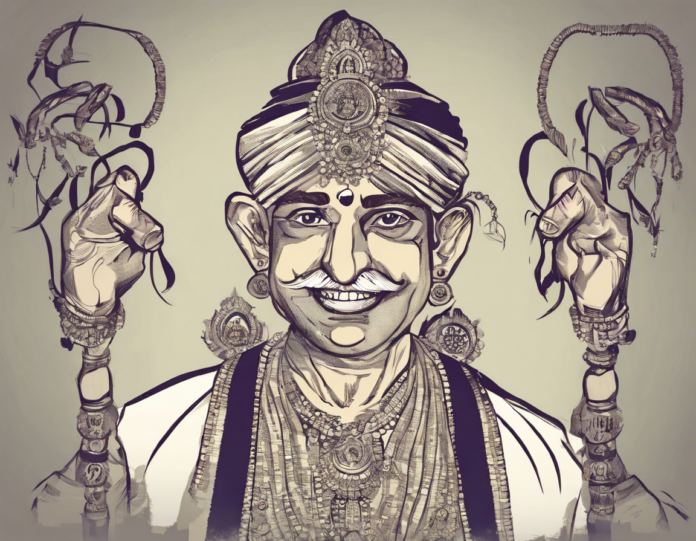Madhya Pradesh has welcomed a new leader at its helm as the state’s Chief Minister. With the transition of power comes a wave of expectations, promises, and a fresh vision for the future of the state. The newly appointed Chief Minister steps into a role that embodies not only political responsibility but also a commitment to the welfare and progress of the people of Madhya Pradesh. Let’s delve deeper into the background, goals, and challenges that lie ahead for Madhya Pradesh’s new Chief Minister.
The Rise to Power
The journey to becoming the Chief Minister of a state is often marked by years of dedication, hard work, and political acumen. Understanding the backstory of the newly appointed Chief Minister provides valuable insights into their leadership style and vision for governance. Key factors such as previous political positions, accomplishments, and ideology play a significant role in shaping the approach of the Chief Minister towards governance. It is essential to analyze the career trajectory and political affiliations of the new Chief Minister to gauge their suitability for the role.
Vision for Development
Economic growth, infrastructure development, healthcare, education, and employment opportunities are critical areas that demand the attention of the Chief Minister. A comprehensive vision for the development of Madhya Pradesh should encompass strategies to boost industrial growth, enhance agricultural productivity, and improve the overall quality of life for its residents. The Chief Minister’s roadmap for development should outline concrete steps, policies, and initiatives aimed at fostering progress and prosperity across the state.
Infrastructure Development
Infrastructure forms the backbone of any thriving economy. The focus should be on modernizing transportation networks, enhancing connectivity, and promoting sustainable urban development. Investments in infrastructure projects not only create employment opportunities but also lay the foundation for long-term growth and competitiveness.
Healthcare and Education
A robust healthcare system is essential for ensuring the well-being of the population. The Chief Minister’s agenda should include measures to improve healthcare infrastructure, enhance access to quality healthcare services, and promote healthcare affordability. Similarly, investments in education, upgrading educational institutions, and enhancing skill development programs are vital for equipping the youth with the necessary tools to excel in the rapidly evolving job market.
Challenges on the Horizon
Navigating the complex landscape of governance comes with its set of challenges and obstacles. The Chief Minister must be prepared to address issues such as unemployment, poverty, environmental degradation, and social inequalities. Tackling these challenges requires strategic planning, effective implementation of policies, and a collaborative approach that involves various stakeholders.
Unemployment and Poverty
Addressing the issue of unemployment and poverty requires a multi-pronged strategy that focuses on creating job opportunities, promoting entrepreneurship, and implementing social welfare programs. The Chief Minister’s policies should aim at uplifting the marginalized sections of society and ensuring inclusive growth that benefits all strata of the population.
Environmental Conservation
Preserving the environment and tackling environmental challenges such as deforestation, pollution, and climate change are paramount for ensuring sustainable development. The Chief Minister must prioritize environmental conservation efforts, promote renewable energy initiatives, and enforce stringent environmental regulations to safeguard the state’s natural resources for future generations.
Frequently Asked Questions (FAQs)
1. What are the qualifications required to become a Chief Minister?
To become a Chief Minister, an individual must be a citizen of India, at least 25 years of age, and a member of the state legislative assembly.
2. How is the Chief Minister appointed?
The Chief Minister is appointed by the Governor of the state, based on the majority party or coalition in the state legislative assembly.
3. Can the Chief Minister be removed from office?
Yes, the Chief Minister can be removed from office through a vote of no confidence in the state legislative assembly or by resigning voluntarily.
4. What are the powers of the Chief Minister?
The Chief Minister is responsible for the administration of the state, chairs the state cabinet meetings, and plays a key role in policy formulation and decision-making.
5. How long is the term of a Chief Minister?
The term of a Chief Minister is five years, subject to re-election in the next state legislative assembly elections.
In conclusion, the appointment of a new Chief Minister heralds a new chapter in the political landscape of Madhya Pradesh. The success of the Chief Minister’s tenure will be measured by their ability to address pressing issues, drive sustainable development, and uplift the lives of the people. As the state embarks on this journey with a new leader at the helm, the collective aspirations and dreams of its citizens pave the way for a brighter and more prosperous future.









